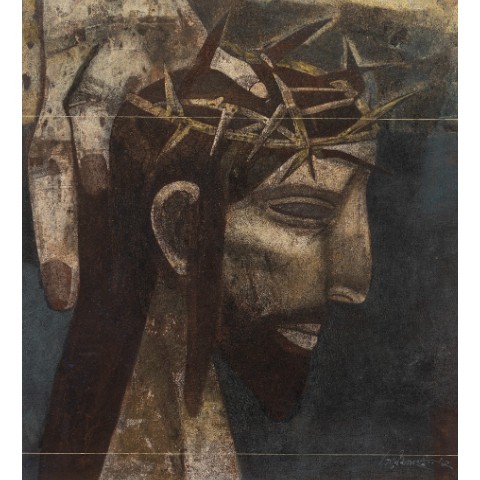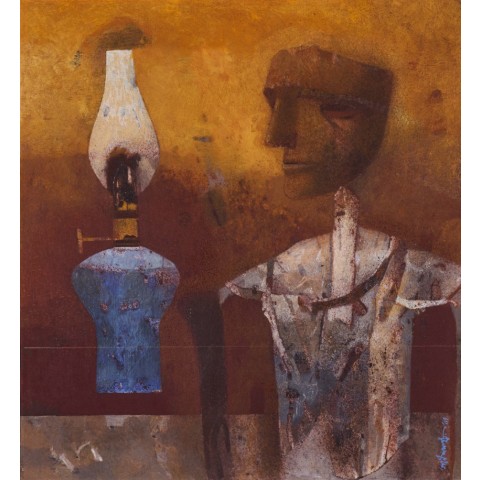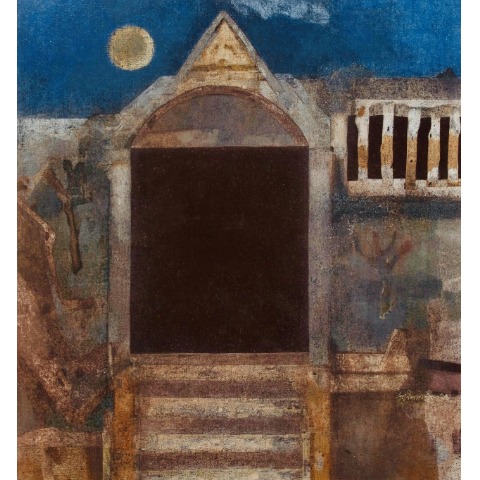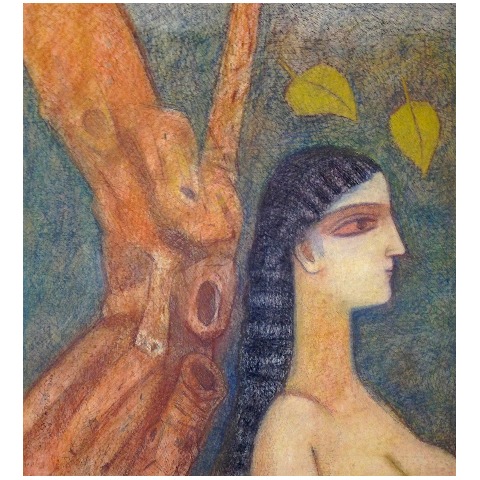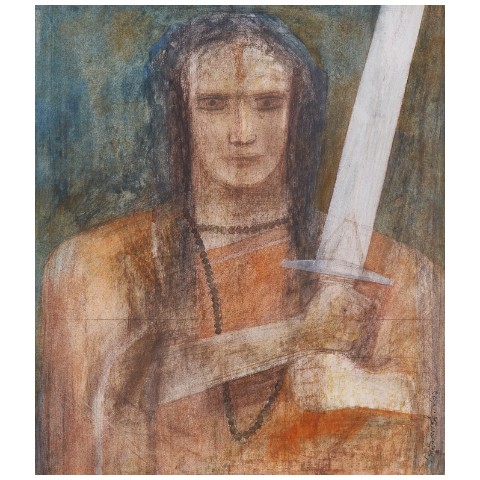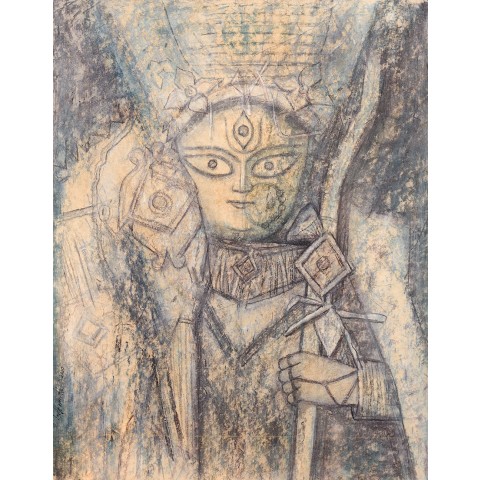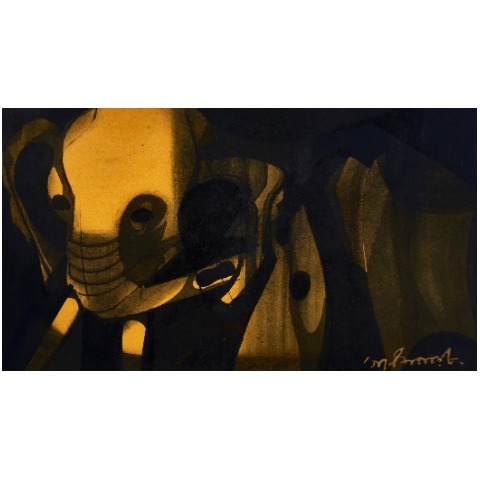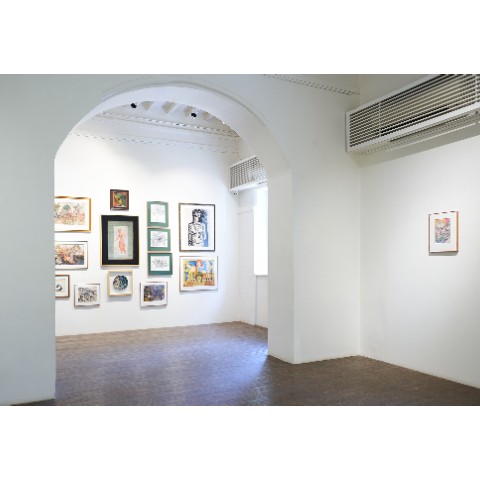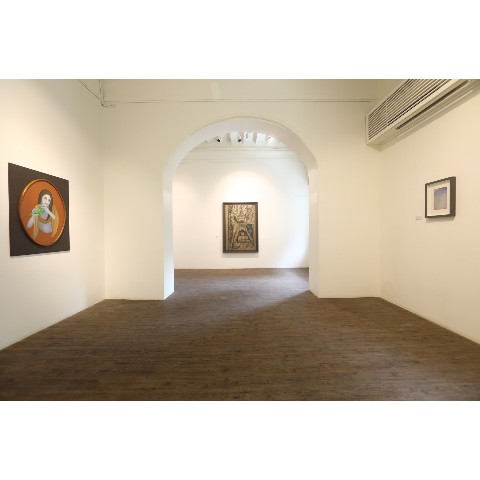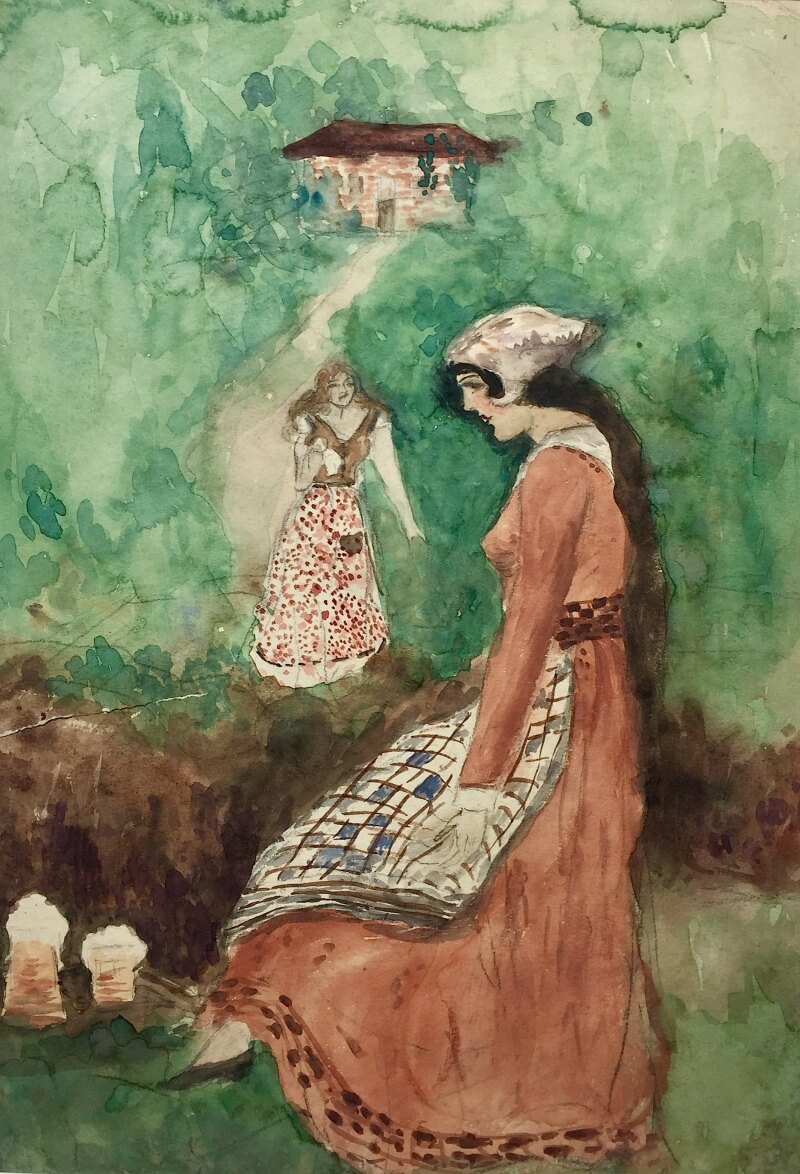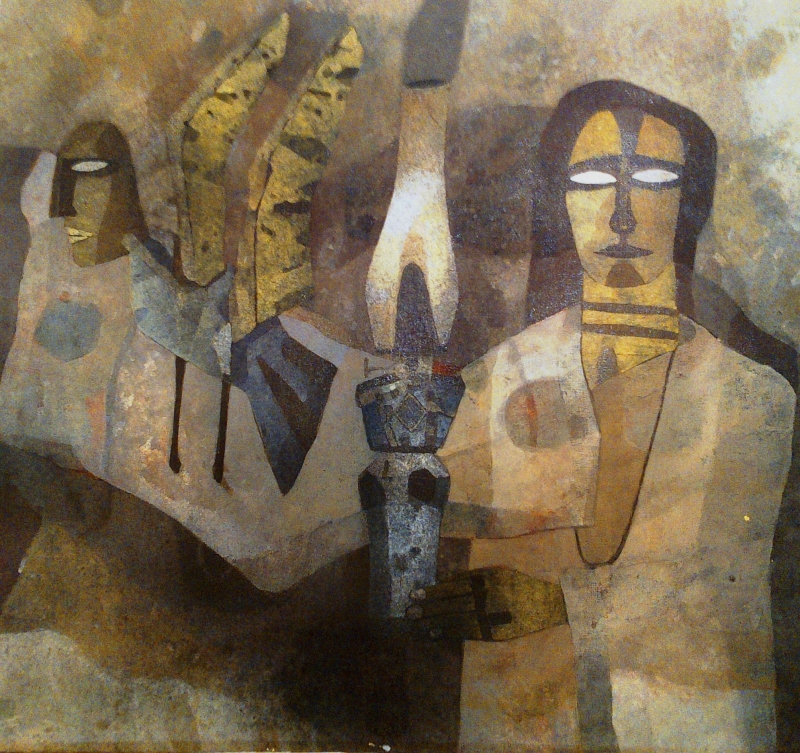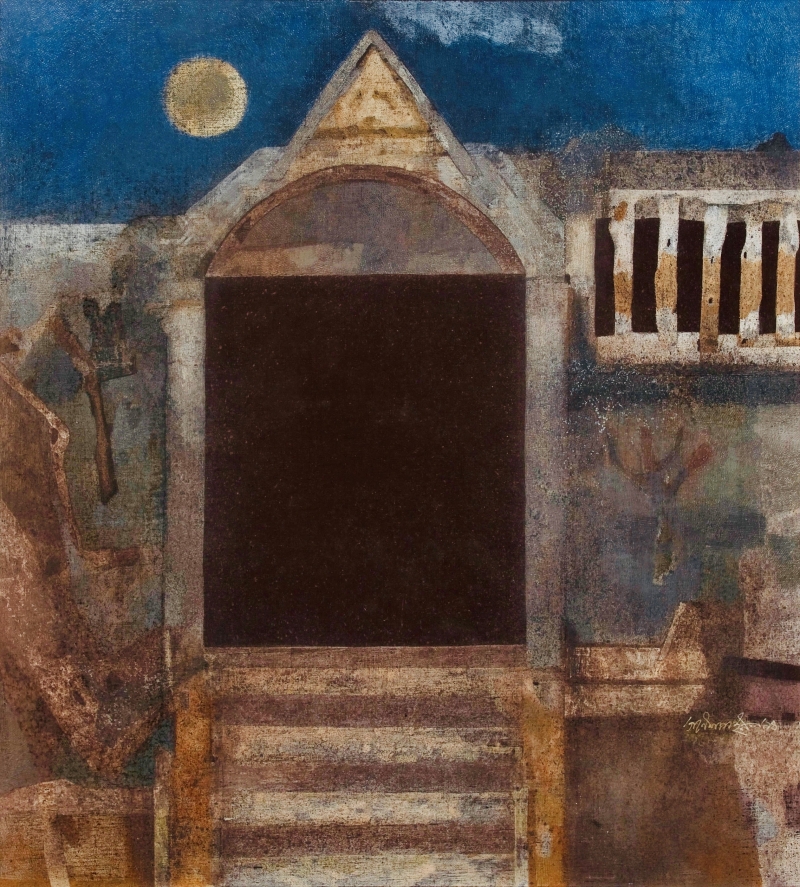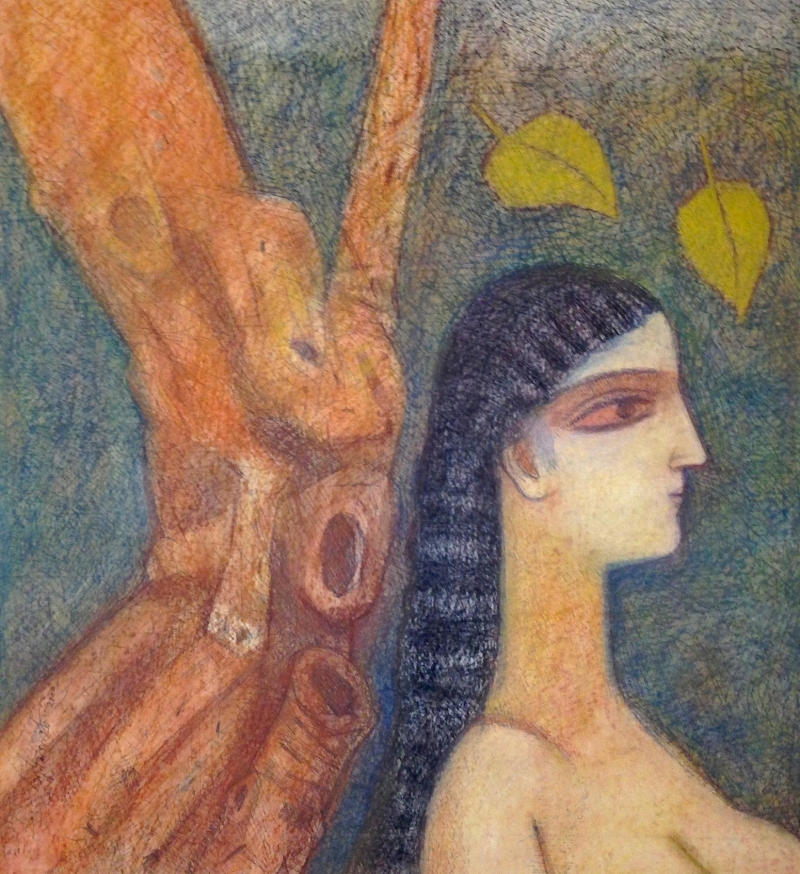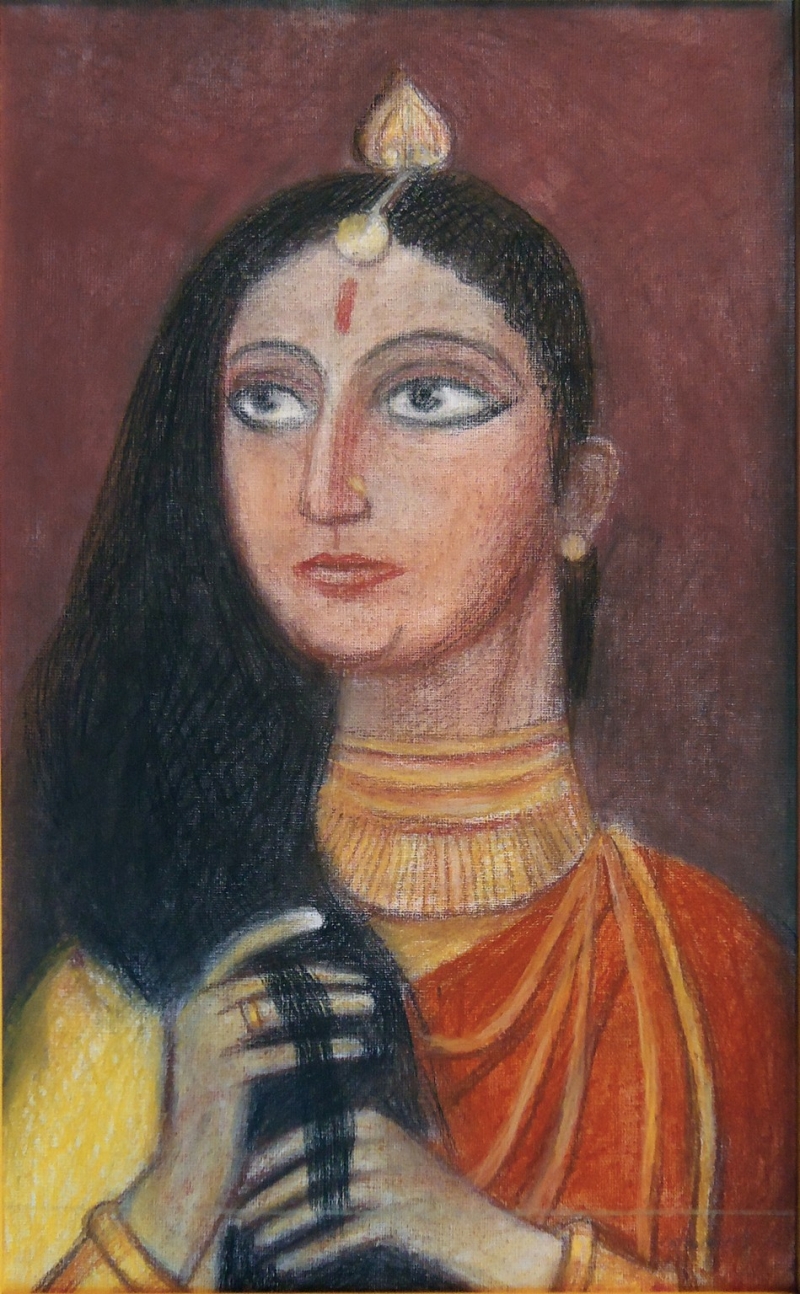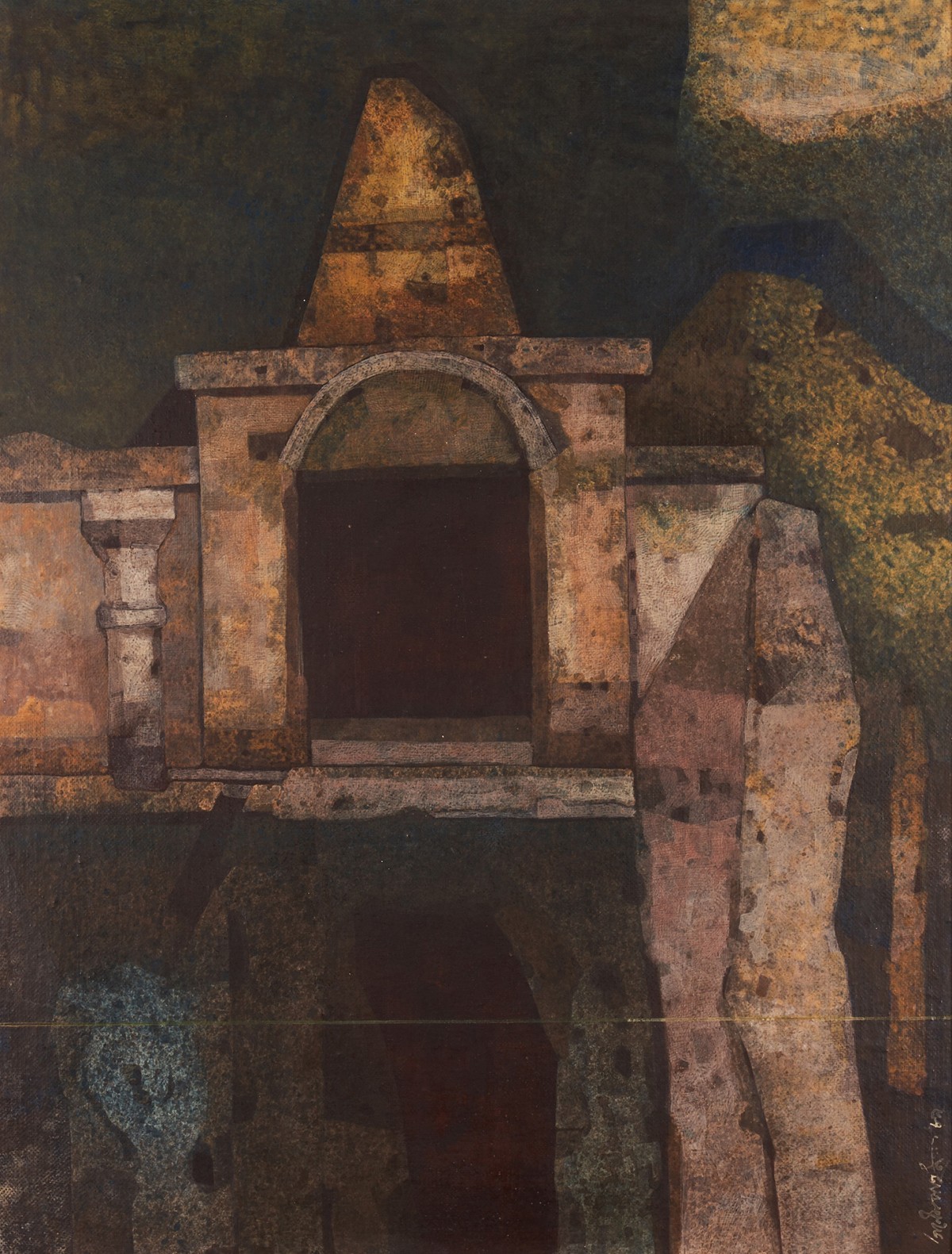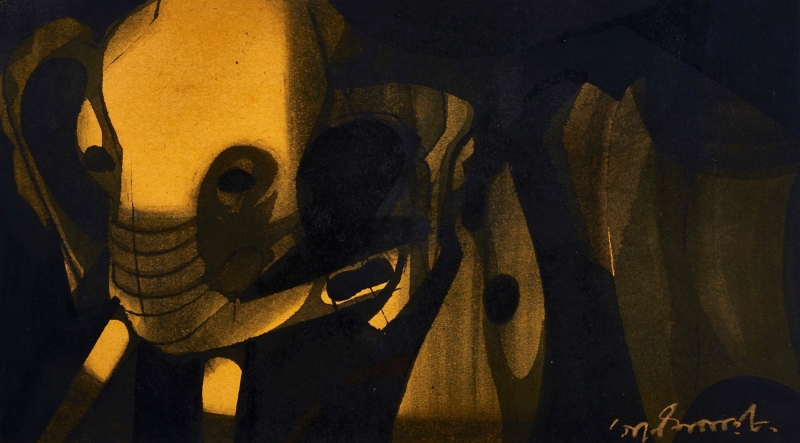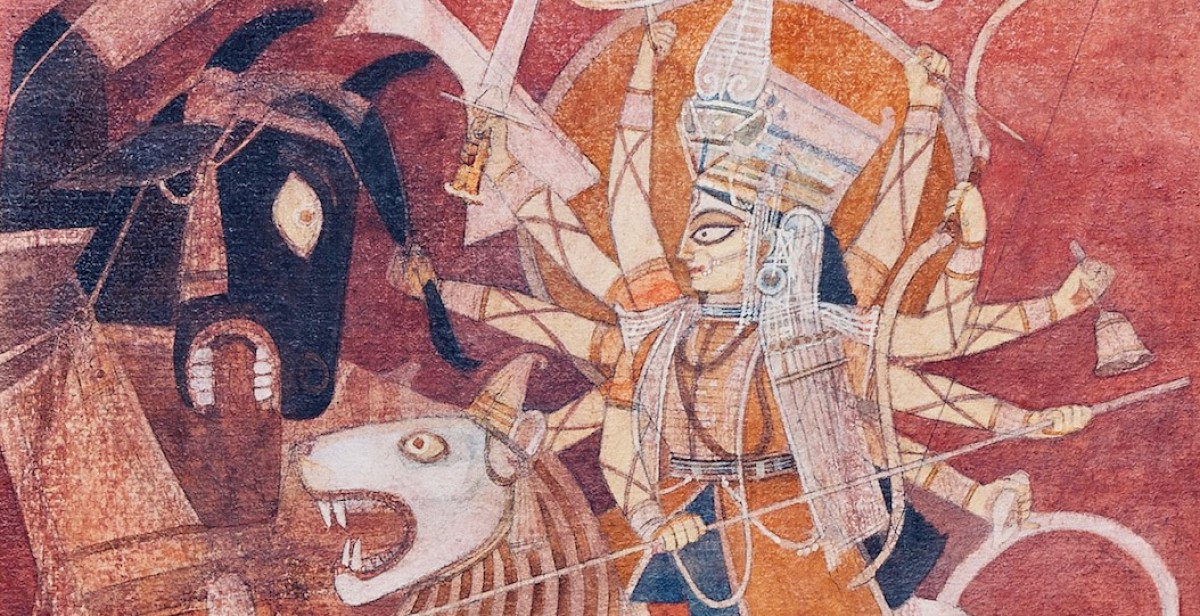
GANESH PYNE
Akara Modern
1937 -2013
Born in Kolkata, Ganesh Pyne is one of the most notable contemporary
artists of the Bengal School of Art. The social violence and despair that arose
in the 1940s and 1970s had a deep impact on his psyche and work. Coupled with
the influence of his grandmother’s stories, Pyne developed his style of
"poetic surrealism" around the themes of Bengali folklore and
mythology, using elements of fantasy and dark imagery. After graduating from
the Government College of Art and Craft, Kolkata in 1959, Pyne worked as an
animator for a few years and contributed to advertising films. While he came
from a very traditional upbringing, Pyne's vision was more sombre and menacing.
Moving away from romantic and nationalist themes, he explored existential
questions and subject matter that gave voice to his experiences of solitude,
alienation, pain, and horror. Pyne’s oscillation between moods of serenity and
haunting surfaces in each of his works.
Pyne received the Gagan Abni Puroskar from Visva Bharati in 1997, a D.
Litt from Kalyani University, and the Kalyani and Abanindra Purashkar from the
West Bengal Government in 2004.
Pyne participated in several solo shows, including the Centre of
International Modern Art, Kolkata (2014–14, 2010); Vadehra Art Gallery, New
Delhi (2013); Gallerie 88, Mumbai (2005); and the National Gallery of Modern
Art, Mumbai (2000), among others. His group shows include Sakshi Gallery,
Mumbai (2012); Vadehra Art Gallery, New Delhi (2012, 2010); and the Centre of
International Modern Art, Kolkata (2010), to name a few.
He received many accolades in his lifetime, including the Raja Ravi
Varma Award from the Kerala Government in 2011, a Lifetime Achievement Award,
Star Ananda, Kolkata, in 2008, the Abainindra Puraskar, Government of West
Bengal, in 2004, and the Gagan Abani Puraskar, Visva Bharati, in 1997.
An admirer of Abanindranath Tagore in his early years, Pyne successfully
achieved a translucent effect in his tempera paintings. His great skill lay in
dramatic rendering of light and shade—the effect of a trapped, eerie light in
small, dense works created an air of mystery.
